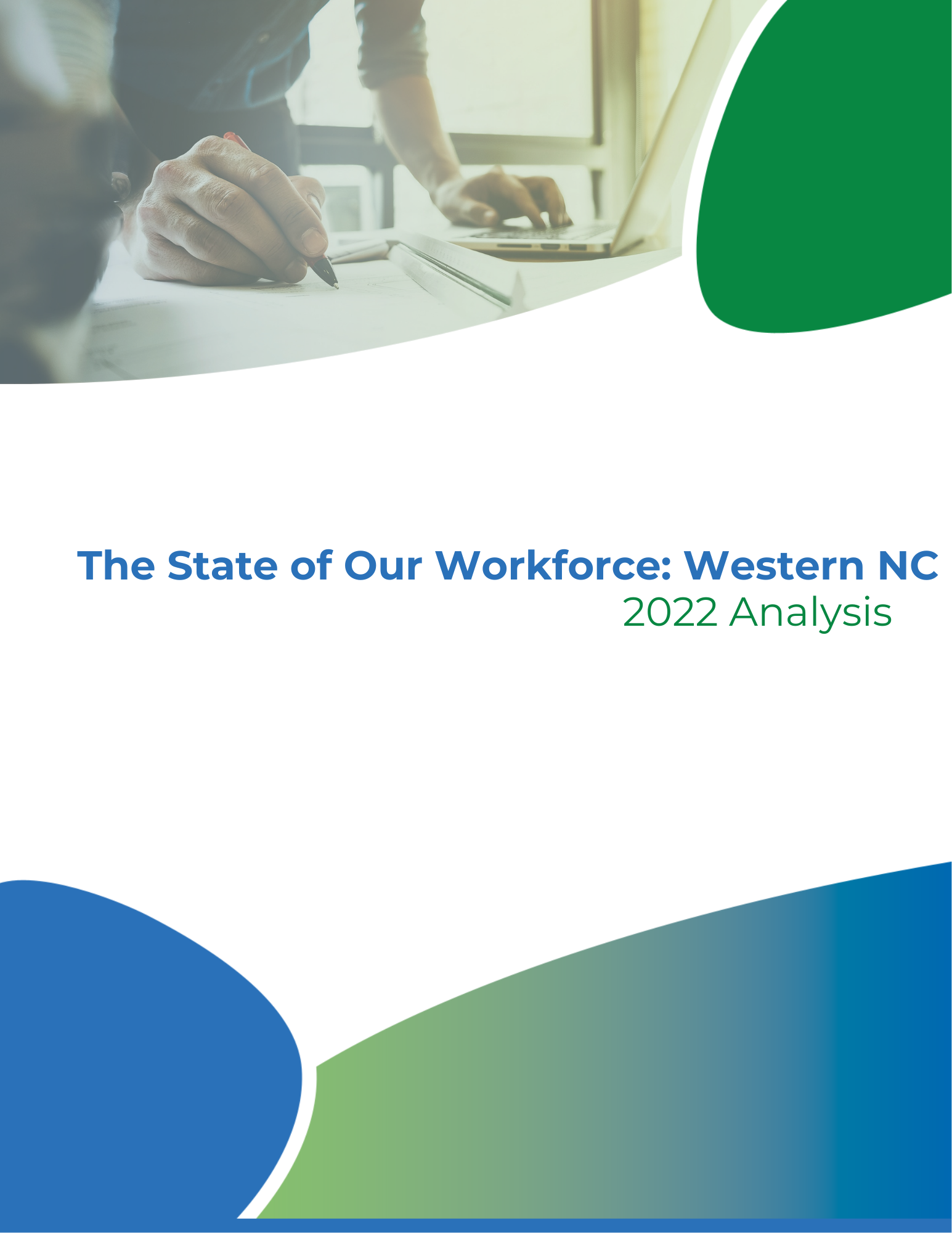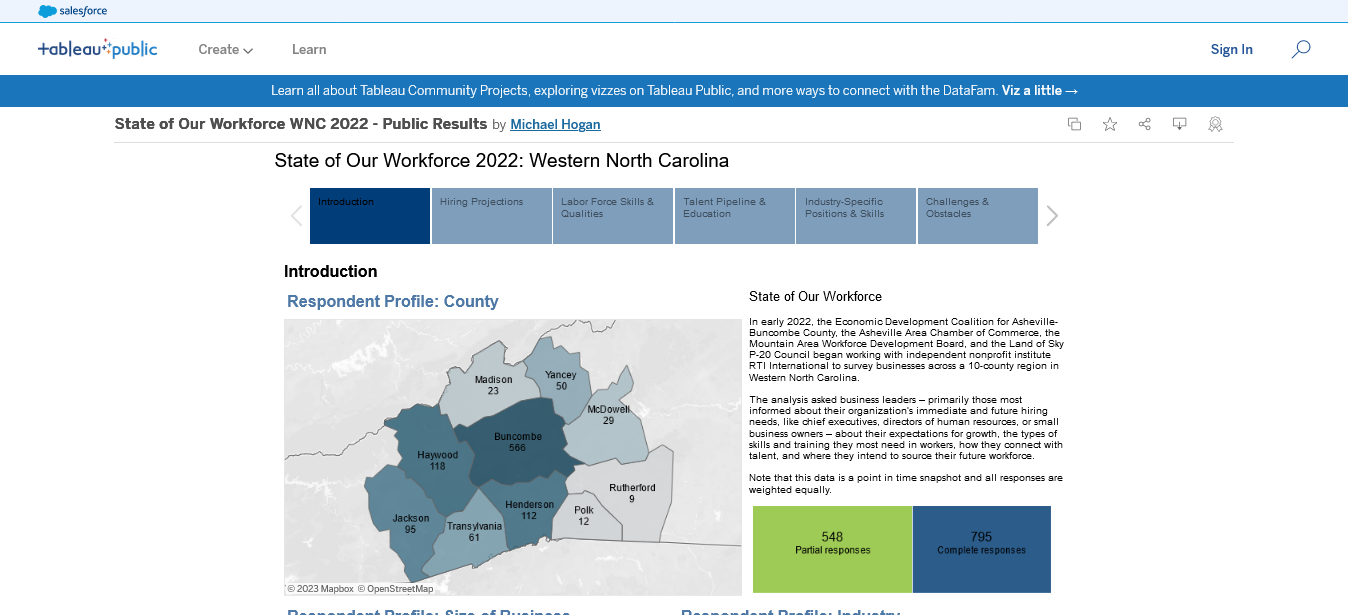Preparing the workforce first requires us to understand what our employers need
More than 470,000 people live in the Asheville Metropolitan Statistical Area (MSA), and more than 10 million people live in North Carolina. In addition, our region and our state are both forecast to continue growing. In these conditions of persistent growth, a strong, skilled, and diverse talent pipeline will continue to drive our economic success. Therefore, it’s essential that we understand gaps in our region’s existing talent pipeline and identify opportunities to fill them to ensure prosperity across Western North Carolina.
Introduction
Before and throughout the COVID-19 pandemic, Western North Carolina employers encountered challenges recruiting and retaining the talent they needed. These difficulties persist in the Asheville MSA, which, as of June 2022, holds the lowest unemployment rate in North Carolina. With this context in mind, area stakeholders, policymakers, and employers sought to strengthen and broaden our region’s talent pipeline. To inform their efforts, the State of Our Workforce: Western NC talent analysis was operated in Spring of 2022.
In early 2022, the Economic Development Coalition for Asheville-Buncombe County, the Asheville Area Chamber of Commerce, the Mountain Area Workforce Development Board, and the Land of Sky P-20 Council began working with independent nonprofit institute RTI International to survey businesses across part of Western North Carolina. The ten counties included were Buncombe, Haywood, Henderson, Jackson, Madison, McDowell, Polk, Rutherford, Transylvania, and Yancey. This survey was also conducted in 2018 among businesses in the same Western North Carolina footprint.
The 2022 State of Our Workforce: Western NC survey ran from March 15 – May 31, 2022. During that time, we collected 795 completed responses and 548 additional partial responses. The survey asked business leaders – primarily those most informed about their organization’s immediate and future hiring needs, like chief executives, directors of human resources, or small business owners – about their expectations for growth, the types of skills and training they most needed in workers, how they connected with talent, and where they intended to source their future workforces.
- Understand the short- and long-term hiring needs of our region’s employers
- Provide information on current and future workforce needs to training and education providers
- Connect policymakers in education, workforce, and economic development with current workforce information
- Inform regional stakeholders’ individual and collaborative investments in workforce and economic development over the next three years
Key Findings
The 2022 findings suggest that most Western North Carolina employers in each surveyed industry expect to grow over the next three years. The 2018 survey results contained similar growth projections. Many businesses experienced COVID-19-related challenges in recent months. Yet, the expectations that many Western North Carolina employers have for business growth remain similar to their pre-pandemic growth expectations. Overall, respondents to the 2022 survey anticipate hiring between 22,150 and 44,140 total new employees in the next three years.
To help meet these growing workforce needs and to ensure economic opportunity is accessible to every member of our community, organizations in local government, education, and economic and workforce development across our region will need to work individually and collaboratively to connect prospective workers with skills, training, and opportunities.
%
% of companies who expect to grow in the next three years

Respondents expect to add 22,150 to 44,140 new jobs

Growth expected among businesses of all sizes

10-30% of new hires are expected to come from outside WNC
Healthcare and Manufacturing Employers Anticipate the Largest Hiring Needs
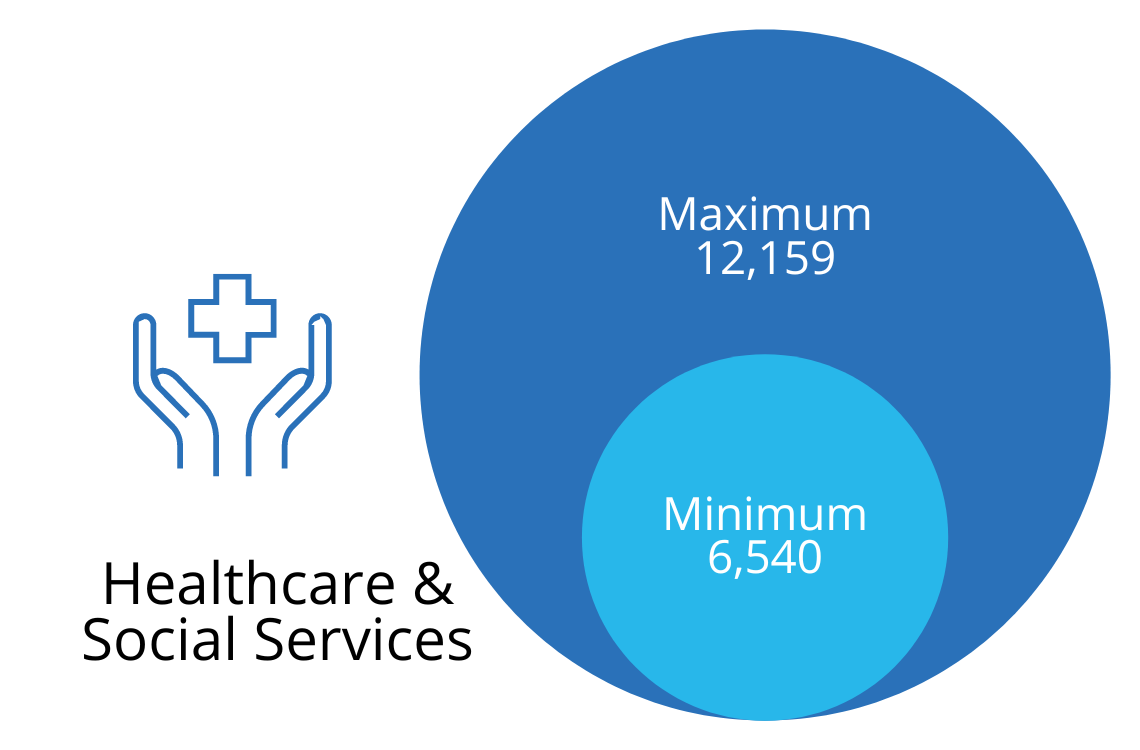
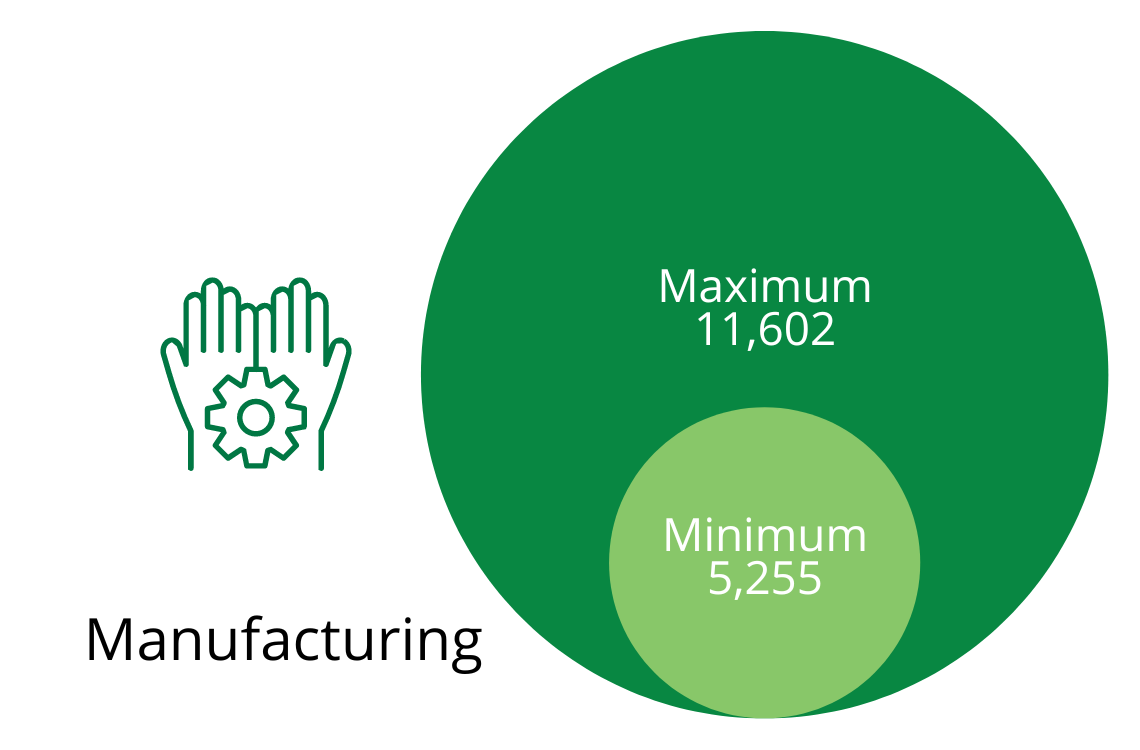
Employers Seek Workers with Degrees and Credentials
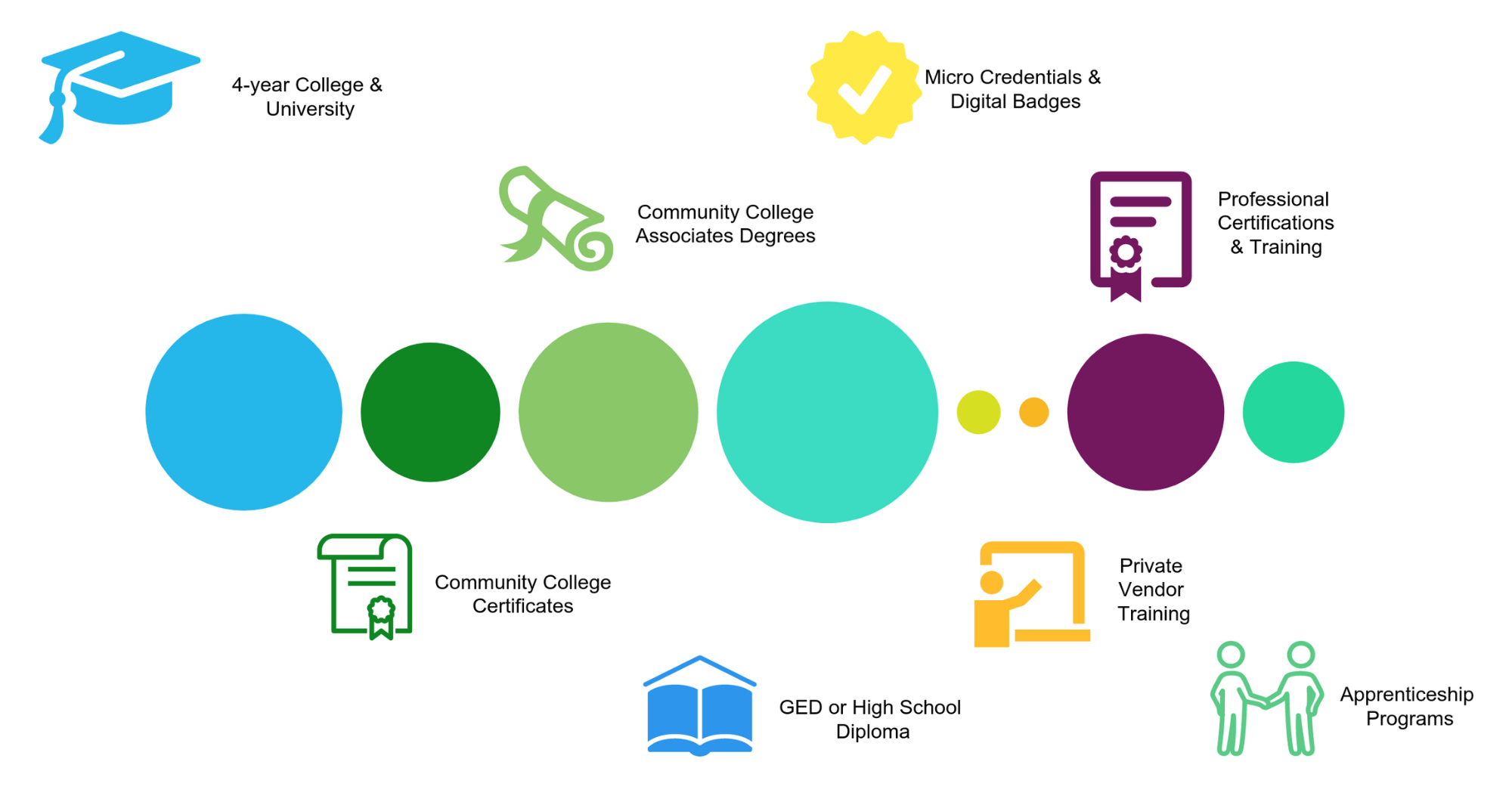
1) 4-year College & University is most sought after credential for employers in Healthcare & Social Assistance (which projects largest growth over the next three years); IT, Software, & Analytics; Professional & Technical Services; and Public Sector.
2) GED or High School Diploma is most sought after credential for Manufacturing (#2 in expected job growth over the next three years); Construction; Energy, Utilities, & Clean Tech; Restaurants & Retail.
3) Community College Associates Degrees are second most sought after credential for all industries except Construction, which noted Apprenticeships as second most sought after credential.
Summary
The following items were identified as the strongest takeaways from the survey:
- Western North Carolina employers’ expectations for business growth remain as strong as they were in 2018, despite challenges associated with the COVID-19 pandemic. Over two-thirds of employers expect to grow their workforces in the next three years.
- Employers view cost and availability of housing, wages, and employee access to child care as the most significant obstacles to talent recruitment and retention.
- There is a wide range of demand for workers who hold credentials ranging from GEDs or high school diplomas to two- and four-year college degrees, as well as certificates and apprenticeships.
- Employers expressed a broad need for employees with industry-specific skills and credentials as well as key soft skills including responsibility and self-discipline, taking initiative, critical thinking, and communication skills.
- Employers continue to rely on friendships and networks for talent recruitment at a similar rate to our 2018 survey, but have increased utilization of other tools like online job portals, social media, and career fairs to reach a broader and more diverse talent pool.
High-quality education resources like area public school systems, community colleges, and universities, access to job training opportunities, and a strong network of partners who prioritize growing and diversifying our talent pipeline will bolster our region’s efforts to address current and future workforce needs.
The State of Our Workforce: Western NC, 2022 Analysis
Download the full report for more details, including data about:
- Industry-specific findings
- In-demand soft skills
- Local talent pipeline
- Obstacles to talent recruitment and retention
- Preferred method of K-12 student engagement
- . . . and more
Partners
The 2022 State of Our Workforce: Western NC talent analysis was led in partnership among the Asheville Area Chamber of Commerce, the Economic Development Coalition for Asheville-Buncombe County, the Mountain Area Workforce Development Board, and the Land of Sky P20 Council and was operated by RTI International.
We are deeply grateful for the support of more than 90 leaders from Chambers of Commerce, economic development organizations, local governments, education partners, community leaders, and stakeholders, who encouraged employer participation in this survey.
To learn more about the survey, visit www.ashevillechamber.org/get-engaged/advocacy/state-of-workforce/

